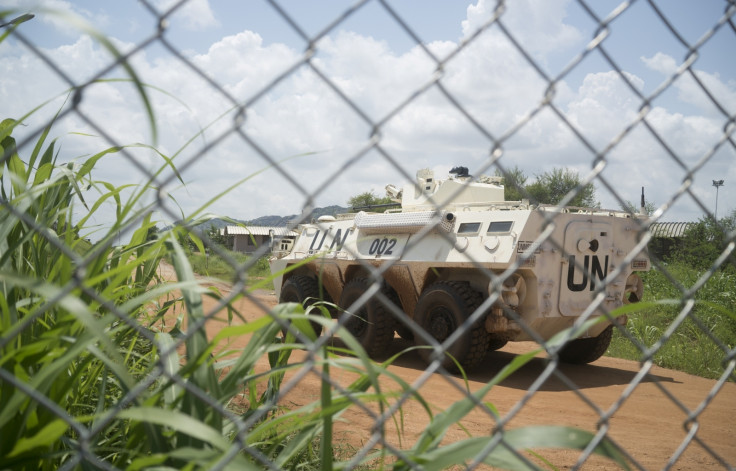UN approves, but South Sudan rejects, deployment of 4,000 additional troops in Juba
A draft resolution sponsored by the US also proposed imposing an arms embargo if the government does not cooperate.
The United Nations on Friday (12 August) has approved a 4,000-member force in the South Sudan capital of Juba but in response the government said it would not cooperate with the world body. The US had recommended that the UN Security Council authorise the deployment of additional troops to ensure peace and security in the region.
A draft resolution sponsored by the US on 8 August received 11 votes in favour, while Russia, China, Venezuela and Egypt declined to vote. The proposal also wanted to impose an arms embargo on the world's newest nation if the government does not offer cooperation. However, South Sudan had earlier said it would agree to the deployment of an Africa-led regional peace force.
US Deputy Ambassador for UN, David Pressman, said: "Until the leaders of South Sudan are willing to put what is good for their people before themselves, putting peace ahead of personal ambition and power... the people of South Sudan will continue to suffer from the bloodshed and instability their leaders reap," Reuters reported.
The African protection forces are said to have a more far-reaching mandate than the 12,000 UN soldiers who are already part of the existing UN peacekeeping mission in South Sudan, called UN Mission in South (UNMiss). To enforce peace in Juba after the recent violence, the troops are allowed to act against anyone who is "preparing attacks, or engages in attacks" against UN sites, civilians or aid workers. It apparently could even confront the government troops if the need arises.
The council has reportedly authorised UNMiss and the additional forces until 15 December 2016. However, President Salva Kiir immediately objected to the deployment of forces on Friday.
"That is very unfortunate and we are not going to 'cooperate' on that because we will not allow our country to be taken over by the UN," Kiir's spokesman Ateny Wek Ateny told the news agency. "Any force that will be called Juba Protection force will not be accepted."
Several council members reportedly wanted an immediate arms embargo in the country as Friday's resolution said it would consider enforcing it if Kiir's government blocks the deployment of protection forces or the work of UNMiss.

"Today we also had a chance to stop the violence by implementing arms embargo on South Sudan. On that we have failed," Britain's deputy UN ambassador, Peter Wilson, told the Security Council.
The authorisation to deploy forces has come after days of heavy clashes between rival forces in July that involved tanks and helicopters in Juba between troops loyal to Kiir and those supporting former vice president Riek Machar. The fighting left hundreds of people dead within a year since a peace deal was signed. It further raised fears of the country returning to a full-blown civil war.
Having international troops in Juba has been a key demand of Machar, who fled Juba following the clashes and was later dismissed by Kiir. His spokesman welcomed the proposed deployment.
© Copyright IBTimes 2025. All rights reserved.





















